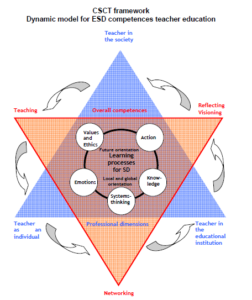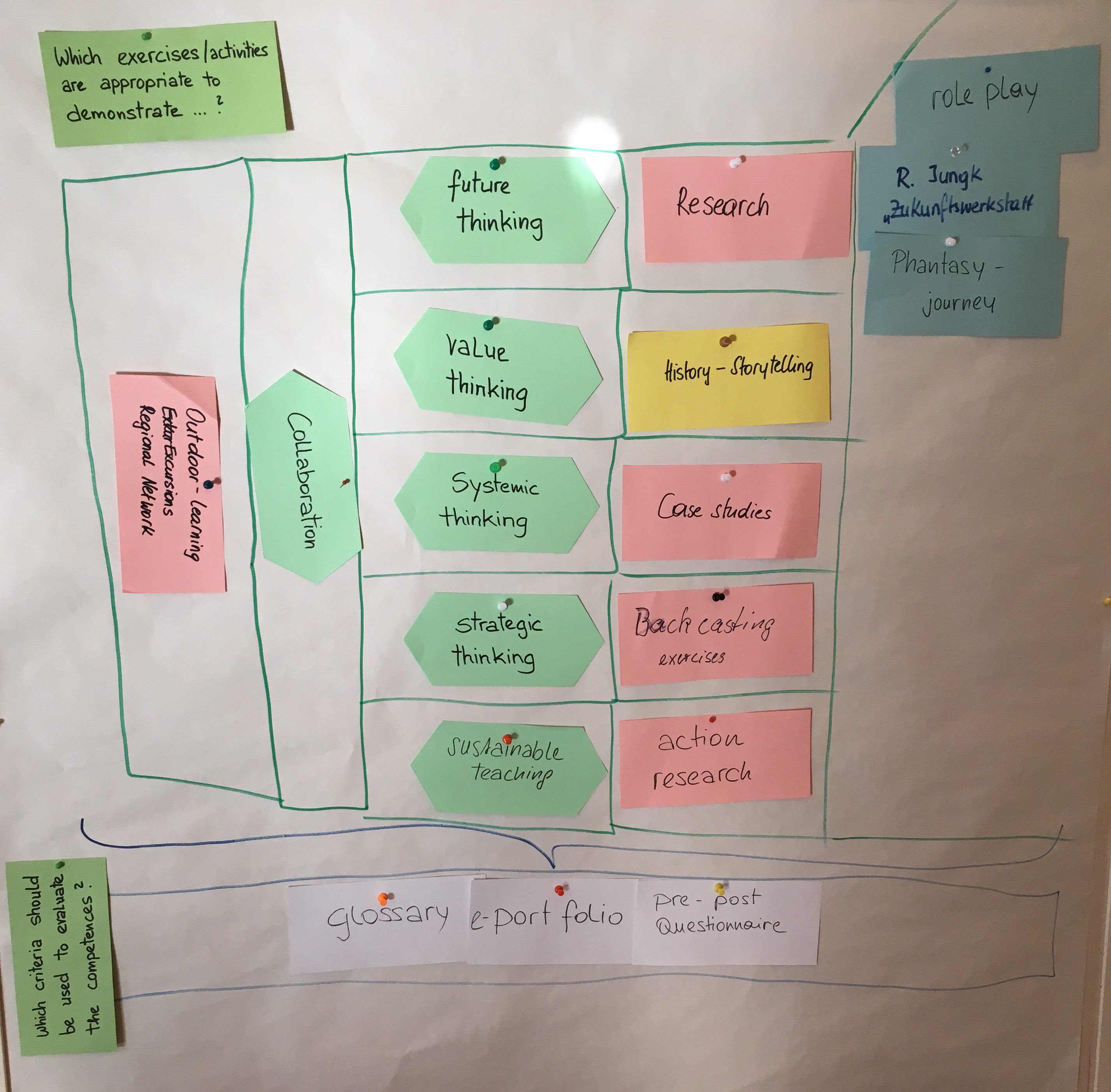Having established a need and demand, a new course should be built on learning outcomes.
This is enshrined in many quality assurance processes and before any financial support is given either by government or supranational bodies such as the EU. Therefore having been granted financial support under the Erasmus+ programme by the EU to develop and pilot a training course to help vocational trainers imbue their training with sustainable principles, one of the first tasks of the Prof E Sus project is to come up with a practical list of learning outcomes.
These are based on what we know of our target group. We used the persona approach to get some background on who our typical teachers are. And dreamed a little to find out what we would like them to be able to do as a result of our course. Since there was a UN decade for sustainability education 2004-2014 we suspected that there may be some training materials including learning outcomes already available. The UN was focused on schools rather than vocational education as we are so there would probably have to be some adaptation. Nevertheless we found a useful set of competences for teachers produced by the little known UNECE, an arm of the UN, which we could use as a starting point.
Of course there are also many higher education institutions that are working on infusing sustainability in their curricula and one good source came from chapter 16 of the Routledge Handbook of Higher Education for Sustainable Development which describes five clusters of sustainability competences for engineering students:
- Future thinking
- Systems thinking
- Strategic thinking
- Values thinking
- Collaboration
Could we adapt these? We would also want to add a cluster of competences in pedagogy for sustainability.
Another good source was the Comenius CSCT project which developed the following model for guiding teacher training in sustainability. In a later blog post I will deconstruct this but it basically includes all the main areas identified in the Routledge Handbook with additional pedagogical competences. Therefore it appears there is some agreement on the core of sustainability competences.

And finally, since our target group will be training students tightly connected to guest-oriented businesses and organisations, we considered looking at the new EntreComp framework published recently by the EU to structure entrepreneurial competences. The framework includes a section on sustainable and ethical competences which we could consider including in our final list of Prof E Sus competences.
Next steps
Having collated relevent competences, we will need to prioritise which ones we think should be included in our course since the whole list will probably be too long to realistically include in one course.
We will then need to see how and whether the priority competences need to be adapted to fit our target group.
We can then take the next steps in course planning, working out what knowledge and skills will lead to our chosen competences.

